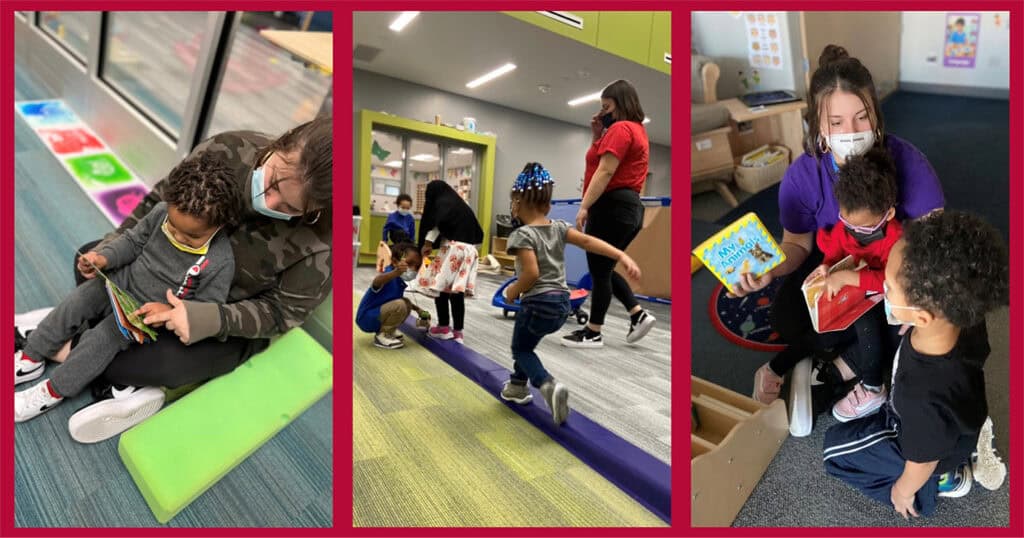In 2021, nine new grants from Trust for Learning were awarded to projects across the country that support equitable, high-quality educator development. These grants, appropriately titled Supporting Equitable Educator Development (SEED) grants, resulted from a report on equity issues found in ideal learning approaches for early childhood (ECE) educators.
While the details may differ, each project is designed with similar goals in mind: to reduce barriers and create more avenues to obtaining high-quality credentials for low-income ECE educators and ECE educators of color, and to incorporate anti-bias, anti-racist (ABAR) strategies into existing development programs.
We’re excited to share that two of these SEED grants are sparking change in equitable educator development right here in our Network!
At Educare Omaha: “Grow Your Own” Educator Program
Last summer, Educare Omaha partnered with local organizations – including Buffett Early Childhood Institute and Avenue Scholar’s Intern Omaha program – to launch a “Grow Your Own” program. This program seeks to provide solutions to current challenges facing Omaha’s educator workforce, including:
- A need for meaningful diversity and inclusion efforts
- A limited number of diverse ECE educators
- A lack of pathways to help ECE educators grow within their practice
“The program started as a way to address our teacher shortage and to diversify the pool of people interested in the ECE field,” says Jamalia L. Jones, Operations Director at Educare Omaha. “[We want to] create a pipeline to have diverse teachers within the field and help children in our program see more teachers that look like them.”
Here’s how it works:
- Rising high school seniors begin a paid internship with Educare Omaha’s “Grow Your Own” program in the summer, during which time they can work up to 40 hours per week. (When school starts in the fall, they can work up to 20 hours per week.)
- Over the course of the program, each intern is assigned a lead teacher as a mentor who can assist them with understanding the program and help them gain a better appreciation for the ECE field.
- By the time they graduate from high school, these interns will not only have invaluable experience in early childhood education, but will also have obtained a Child Development Associate (CDA) certification.
Now, almost a full year since its initial launch, administrators have seen a noticeable change in these high school students.
“Interns have a better appreciation for the field,” Jones says. “[And] for some, due to the experience, they discover that ECE is not for them. It’s good to help individuals identify early what they are passionate about.”
Speaking of passion, there’s a lot of that to go around when looking towards the future of this program.
“The goal is to continue to grow our own workforce,” says Jones, sharing that while high school students will continue to intern with Educare Omaha, there is also new consideration for adding college students to the pipeline as well.
At the Educare Learning Network: Essential Practices of Educare Training Series
With support from the SEED grant, the Educare Learning Network team began efforts to audit the Essential Practices of Educare training series with a Diversity, Equity, Inclusion & Belonging (DEIB) and ABAR lens. These professional development modules help improve quality in center-based ECE programs across the country by leveraging existing Educare schools and other high-quality ECE organizations.
In order to comprehensively examine our training content, we engaged with expert consultants to review and audit all Essential Practices of Educare materials. We also established a SEED Advisory Committee, made up of various professionals in the ECE field with a passion or focus on ABAR and DEIB, to provide feedback on recommended revisions to the modules. Plans are currently in development to prioritize and integrate these revisions into all Essential Practices of Educare content, as well as provide knowledge and support to the Network’s facilitators around facilitation approaches and strategies that embrace DEIB and ABAR practices.
